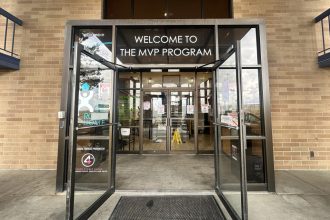Canada is often portrayed as a land of endless opportunities, scenic landscapes, and multicultural communities. While this is true to an extent, relocating to Canada isn’t without its challenges. Beyond the glossy brochures and promotional videos, there are realities that many newcomers discover only after arriving. Here’s what they don’t tell you about relocating to Canada, so you can be better prepared for the journey ahead.
1. Cost of Living Can Be High
Many people move to Canada with the expectation of affordable living. However, depending on the city or province you choose, the cost of living can be surprisingly high.
What to Expect:
- Housing Costs: In cities like Toronto and Vancouver, renting a one-bedroom apartment can cost over CAD 2,000 per month. Smaller towns and provinces like Saskatchewan or New Brunswick offer more affordable options.
- Groceries and Essentials: Food prices in Canada can be steep, especially for imported goods. Items like fresh produce and dairy are often more expensive than in other countries.
- Transportation: Owning a car involves expenses like insurance, fuel, and maintenance, while public transportation costs add up over time.
Pro Tip:
Budget carefully before moving and research the cost of living in different provinces to choose an area that fits your financial situation.
2. Job Hunting Takes Time
Even though Canada welcomes skilled immigrants, finding a job in your field may not be as easy as you think.
Challenges:
- Lack of Canadian Experience: Many employers prefer candidates with Canadian work experience, which can be frustrating for newcomers.
- Credential Recognition: Certain professions, like healthcare and engineering, require additional certifications or licensing to practice in Canada.
- Competitive Job Market: While job opportunities are plentiful in some sectors, others are highly competitive, especially in urban centers.
Pro Tip:
Consider taking short-term survival jobs while you work on getting your credentials recognized or gaining Canadian experience.
3. Harsh Winters Are No Joke
Canada’s winters are infamous for their intensity, especially in provinces like Manitoba, Alberta, and Quebec. Temperatures can drop as low as -30°C (-22°F), with heavy snowfall and icy conditions.
What to Expect:
- Physical Impact: The cold can be challenging if you’re not accustomed to it. Dressing in layers and investing in quality winter gear is essential.
- Emotional Impact: Seasonal Affective Disorder (SAD) is common during the long, dark winters.
Pro Tip:
Engage in winter activities like skiing or ice skating to make the most of the season and stay active.
4. Healthcare Is Not Entirely Free
Canada’s healthcare system is publicly funded, but it’s not entirely free, and there are limitations.
What They Don’t Tell You:
- Waiting Times: For non-urgent medical procedures, wait times can be several months.
- Excluded Services: Dental care, vision care, and prescription drugs are not covered by the public healthcare system.
- Provincial Coverage Differences: Healthcare services vary by province, and new immigrants may face waiting periods before coverage begins.
Pro Tip:
Consider purchasing private health insurance to cover services that aren’t included in the public system.
5. Culture Shock Is Real
Canada’s multicultural society is a source of pride, but adjusting to a new culture can still be overwhelming.
What to Expect:
- Language Barriers: While Canada has two official languages (English and French), accents, slang, and regional dialects may take time to understand.
- Social Norms: Canadians are known for politeness and indirect communication, which may differ from what you’re used to.
- Loneliness: Building a social network takes time, especially if you’re moving alone.
Pro Tip:
Join local community groups, attend cultural events, and connect with other immigrants to ease the transition.
6. Taxes Are High
Canada’s public services are funded through taxes, which can feel burdensome for newcomers.
Key Points:
- Income Tax: Depending on your income and province, income tax rates can range from 15% to over 50%.
- Sales Tax: Most provinces charge a Goods and Services Tax (GST) or Harmonized Sales Tax (HST) on purchases, which can add 5-15% to your bills.
- Property Tax: Homeowners must pay annual property taxes, which vary by municipality.
Pro Tip:
Familiarize yourself with Canada’s tax system and take advantage of tax credits and deductions to reduce your tax burden.
7. Path to Permanent Residency (PR) Can Be Long
While Canada’s immigration programs are among the best globally, the process of obtaining permanent residency can be lengthy and complex.
Challenges:
- Documentation: Gathering the necessary documents and meeting eligibility criteria can be time-consuming.
- Processing Times: PR applications can take several months or even years, depending on the program and volume of applications.
- Uncertainty: Policies and requirements may change while your application is being processed.
Pro Tip:
Stay organized and regularly check for updates on Immigration, Refugees, and Citizenship Canada (IRCC) to avoid delays.
Final Thoughts
Relocating to Canada is a rewarding experience, but it’s important to be prepared for the challenges that come with it. Understanding the realities of cost of living, job hunting, harsh winters, and cultural differences will help you set realistic expectations and make informed decisions. With proper planning and perseverance, you can successfully navigate these obstacles and build a fulfilling life in Canada. Remember, every challenge is an opportunity to grow and adapt!



